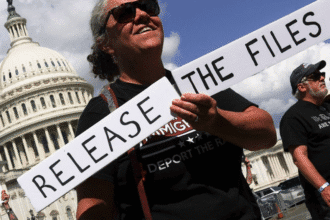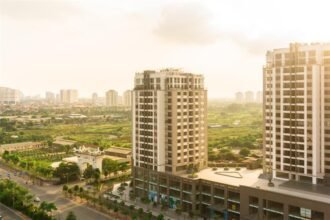Mark Carney, the Prime Minister of Canada, is moving forward with his One Canadian Economy Act, which has big goals for the Canadian economy, such as speeding up infrastructure projects, bringing in big investments, and boosting the economy. But even if this might lead to a lot of growth, there are worries about how it could affect Indigenous rights and environmental protections. Some people are wondering if Canada’s First Nations can maintain their rights while the economy grows.
What makes the One Canadian Economy Act so controversial?
The One Canadian Economy Act, which Carney launched as part of his plan to bring the country back to life, has caused a lot of talk. The law’s ability to skip some environmental studies and speed up the exploitation of important resources is at the centre of the debate. The Ring of Fire, a resource-rich area in northern Ontario, is one of the main places in question. The area has huge amounts of minerals, including chromite, nickel, and copper. Carney’s proposed bill would speed up all of the mining and other activities that could happen there.
The act could bring in billions of dollars in investments and jobs, but it also worries Indigenous groups who see the land as an important part of their culture and way of life. Jeronimo Kataquapit, an advocate from Ontario’s Attawapiskat First Nation, says that the law could violate their sovereignty and provide companies free access to land that is very important to their culture and spirituality.
What do Indigenous leaders think about the new law?
Indigenous leaders from across Canada have voiced serious concerns about the One Canadian Economy Act, saying that it could violate their rights and ignore long-standing agreements to engage with them. According to Ontario Regional Chief Abram Benedict, the law doesn’t do enough to include Indigenous knowledge or take into account what they teach about the environment, which is important for sustainable development.
The Canadian Constitution says that the government must talk to Indigenous groups about things that affect their territory. There is still a lot of disagreement about what the legal standard for consultation is, though. Pamela Palmater, an expert on Indigenous governance, is one of the critics who says that just listening to Indigenous people isn’t enough. They say that real consent must be gained before moving forward with initiatives that damage their territory.
Is it worth the money to speed up projects?
The One Canadian Economy Act’s main goal is to boost the economy, but it’s necessary to think about whether the long-term expenses, such as possible legal fights, are worth the advantages. The government has already felt the financial effects of earlier fights with Indigenous organisations. The Royal Canadian Mounted Police (RCMP), for example, spent around C$50 million to stop protests against pipeline developments in British Columbia. Protests, such as the one staged by the Wet’suwet’en First Nation, have caused millions of dollars in damage and wasted work time.
The penalties to your reputation and finances of not really working together with Indigenous communities may be much higher than the benefits of speeding up development. Carney is pushing for more investment, but the government also needs to deal with the rising need for real engagement with First Nations.
Can economic growth and the rights of Indigenous people be balanced?
Prime Minister Carney said that the One Canadian Economy Act will help all Canadians prosper economically by allowing Indigenous communities to take part in resource development projects. Many Indigenous leaders, like Chief Alvin Fiddler of the Nishnawbe Aski Nation, are, however, asking for more respect for their territorial rights and amendments to the law that would better represent what they have to say.
Some people in the Indigenous community, meanwhile, are still cautiously hopeful about cooperating with the government. John Desjarlais of the Indigenous Resource Network thinks that development can still happen without hurting the land or the rights of Indigenous people. He sees chances for working together that balance community needs, economic growth, and caring for the environment.
Final Thoughts
Prime Minister Carney’s new nation-building plan is an ambitious effort for the future of Canada. It has the potential to bring in more money and improve infrastructure, but it will only work if it can find a good balance between protecting Indigenous rights and promoting economic progress. As legal problems continue, it will be very important for the government to work with First Nations tribes to make sure that any development respects their territory and culture, ensuring that Canada’s Nation-Building Law fosters both growth and sovereignty. The success of Canada’s Nation-Building Law hinges on building trust with Indigenous communities and aligning development goals with their values.








